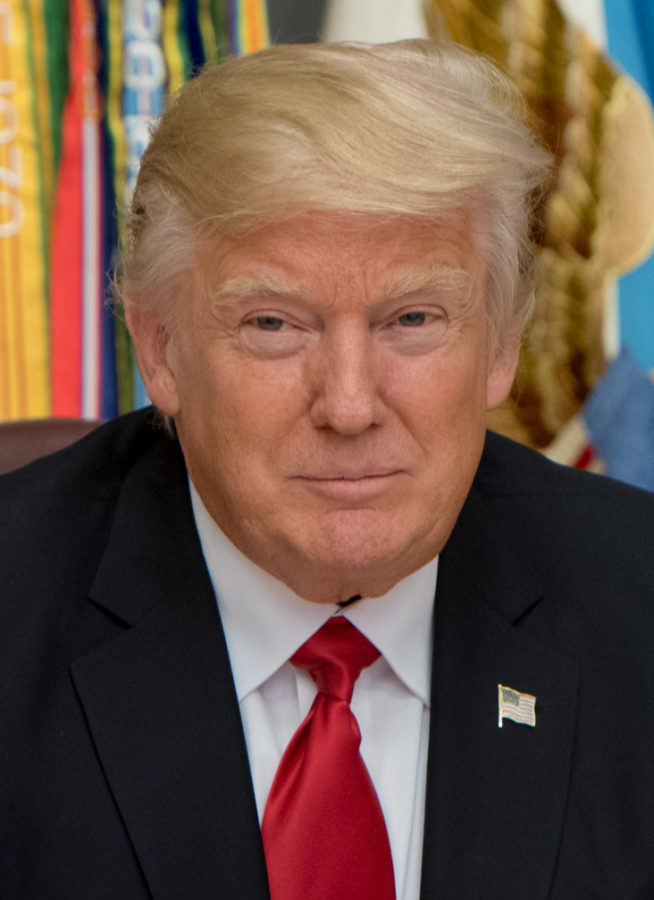Impeachment Inquiry Against President Donald Trump
Is a third presidential impeachment truly justified?
President Donald J. Trump is currently under investigation for impeachment.
Earlier this year, on July 25th, President Donald Trump placed a phone call to the new president of Ukraine, Volodymyr Zelensky. During those 30 minutes, the two presidents exchanged congratulations and pleasantries until President Zelensky expressed interest in acquiring more U.S. Javelin missiles, to which the President responded, “I would like you to do us a favor.” The President went on to request that the Ukrainian government investigate Ukrainian company CrowdStrike, which Trump suspects of interfering with the 2016 election, as well as requesting that they conduct an investigation on former Vice President and current rival presidential candidate, Joe Biden, as well as his son, Hunter Biden for corruption. Just a week beforehand, the President had put a pause on U.S. military support to Ukraine, which many believe to be quid pro quo. The records of this phone call were then quickly removed from the standard White House database by Trump’s lawyers and inserted into a highly protected system typically used for sensitive and classified information, a move seen by many as an attempt to cover up and hide the phone call.

Donald Trump graduated from the Wharton School of the University of Pennsylvania in 1968 with a B.S. Degree in Economics.
A report of everything that had transpired was submitted by a whistleblower to the Committee on Intelligence on August the 12th, but was not revealed to Congress until September 25th, and to the public a day later, on the 26th. The day the he released this information, President Trump stated that the whistleblower was guilty of treason and “akin to a spy,” also noting that “in the old days, spies were dealt with differently.”
The White House has since been doing all they can to reveal the identity of the whistleblower while his lawyer, Mark Zaid, works with Democrats to hide their identity as they currently fear for their safety due to the statement from the President suggesting the death penalty. On October 5th, a second whistleblower also came forth under Zaid’s protection, claiming to have first-hand knowledge regarding the situation.
Based on the above allegations, on September 24 the House of Representatives officially began an impeachment inquiry against the President for “betraying his oath of office, U.S. national security, and the integrity of the country’s elections.” The plan is for the Intelligence Committee to look into the first whistleblower and find out if their complaint was delayed from reaching Congress on purpose and if so, why. The Foreign Affairs Committee will focus on interactions between the State Department and Rudy Giuliani, Trump’s attorney, and the Oversight and Reform Committee will investigate the use of the White House’s classified servers to hide sensitive information from Congress.

The people of the United States are in turmoil over the impeachment inquiry of Donald Trump, tearing the country apart at the seams.
Public opinion is highly varied on the impeachment process; news sources’ and Twitter feeds’ polls on public opinion about the impeachment have come back largely mixed. Lafayette student Nick Paxton-Turner, who has been keeping up with news sources covering the inquiry, stated that the impeachment process is a “waste of tax payer dollars on something that will be over soon anyways,” a sentiment shared with many as the investigation drags on.
The situation continues to progress daily, with many directly or indirectly involved being subpoenaed to give their testimonies and hand over any documents they have relating to the phone call, and the White House declaring on October 8 that they will not comply with the investigation as, arguing that it is an illegitimate effort to overturn the 2016 election and further increasing the tensions between the two branches of government, and the American people.




